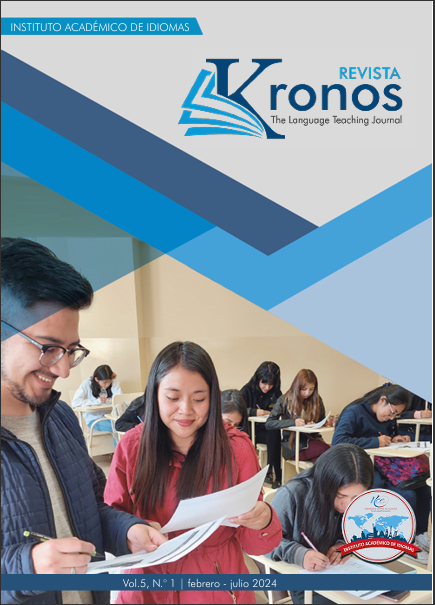Note taking and Educaplay
Their Influence on Vocabulary Acquisition in English as a Foreign Language Students
DOI:
https://doi.org/10.29166/kronos.v5i1.5954Keywords:
note-taking, Educaplay, vocabulary, TEFLAbstract
The impact of innovation and communication technologies in the classroom is frequently discussed, but the contrast of some commonly used techniques that could maintain their advantage is not studied. The present study ex amines the impact of gender, Educaplay use, and note-taking on vocabulary improvement among students in an English as a Foreign Language (EFL) classroom. A sample of 39 undergraduate students participated in pre-test and post-test assessments to measure vocabulary progress. Multiple linear regression analyses were conducted to explore the predic tive relationship between the aforementioned variables and vocabulary improvement. Results revealed that, contrary to expectations, only note-taking demonstrated a significant positive effect ( = 0.338, p < 0.01) on vocabulary im provement, while gender ( = 0.021, p > 0.05) and Educaplay use ( = 0.036, p > 0.05) did not show statistically sig nificant associations. Adjusted R² values indicated that the model including note-taking had greater explanatory power (R² = 0.564) compared to the model without this variable (R² = 0.486). These findings underscore the pivotal role of note-taking as a valuable strategy for improving vocabulary in an EFL context, suggesting implications for instruction al practices and pedagogical approaches in language learning.
Downloads
Published
How to Cite
Issue
Section
License
Copyright (c) 2024 Yessenia Villacres

This work is licensed under a Creative Commons Attribution-NonCommercial-ShareAlike 4.0 International License.












